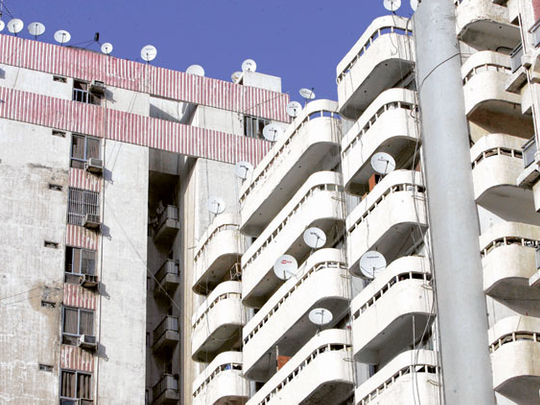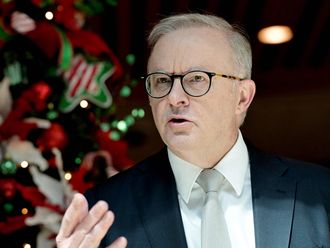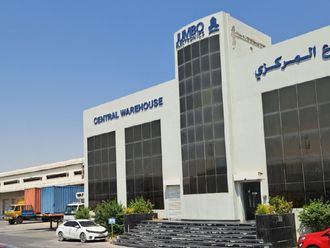
Dubai: Nothing smacks of ‘old media' more than those oversized satellite dishes on rooftops. Now, with the many restrictions in place over their usage, what was once commonplace will soon be a distant memory.
So what can a business which made its mark selling these dishes and the accompanying decoders do? Easy enough — switch to ‘new media'.
"With IPTV emerging as the de facto standard for the delivery of content, our group is now supplying etisalat's e-Vision with the set-top boxes," said Raju Jethwani, chairman of Eurostar. "It was brought about by us signing an exclusive agreement just over two years ago with Pace UK, a manufacturer who supplies more than 20 million such sets to global operators.
"It did prove timely as the core business of selling satellite dishes was badly affected given the restrictions on them in New Dubai locations, while demand was saturated within Old Dubai."
The deal with e-Vision — and etisalat — could be the cusp of something bigger. The service providers are now rolling out Triple Play connectivity in which television, the internet and voice calls can all be routed through a common unit in the home. It has led to the phased replacement of decoders with new ones that allow the triple provisioning.
In some form or other, this could be replicated in some other Gulf markets. "Wherever telecom providers are investing hundreds of millions of dollars on laying down fibre-optic cabling systems, there will be IPTV connectivity," said Jethwani.
"In Saudi Arabia too, the transition is happening. Mobily — the etisalat subsidiary in the kingdom — will go for set-top boxes that can do the entire connectivity.
"We have qualified for the tender given our association with etisalat in the UAE. It is expected that the actual awarding will happen in early 2012, though the initial order size could be small. But the sheer size of the Saudi market ensures significant opportunities."
As it is, Eurostar is among the few in its line of business to have emerged unscathed in the industry's transition to newer modes of content delivery.
By the mid-1990s and into the early part of the last decade, the seemingly insatiable demand for satellite dishes in the UAE spawned a cottage industry. A large swathe of the commercial space in Dubai's Nasser Square was taken up by these retailers.
"Everybody entered believing that the technology available then would be in place forever," said Jethwani.
"Now, most have vanished. Those who remained could do so because they were able to find buyers in Africa or the CIS for digital satellite receiving systems."
Internet pirate caught for uploading pay-TV content
Dubai :The fight continues against piracy in the web domain. A stop was put to the activity of an Abu Dhabi resident who was uploading content from channels owned by a pay-TV operator on to a website. The ‘internet pirate', who was an OSN subscriber, made a full confession after being brought in for questioning by Abu Dhabi Police. The person also agreed to a settlement to avoid any further legal action leading to imprisonment.
OSN had identified 802 counts of piracy violations, according to a statement. "While the OSN subscription terms and conditions stipulate a minimum penalty of $1,200 (Dh5,317) per piracy act, the total amount of contractual damages reached $962,400 which the pirate was asked to compensate OSN." The Arabian Anti-Piracy Alliance had filed a complaint on behalf of OSN with Abu Dhabi CID.
"Piracy threatens the whole entertainment industry and costs companies like ours billions," said David Butorac, CEO of OSN. "Illegal file sharing is a serious matter and in future OSN won't hesitate to take further action beyond compensation." According to an industry source, the hacking and disseminating of copyrighted pay-TV content has come down in the UAE to between 20 to 30 per cent.












